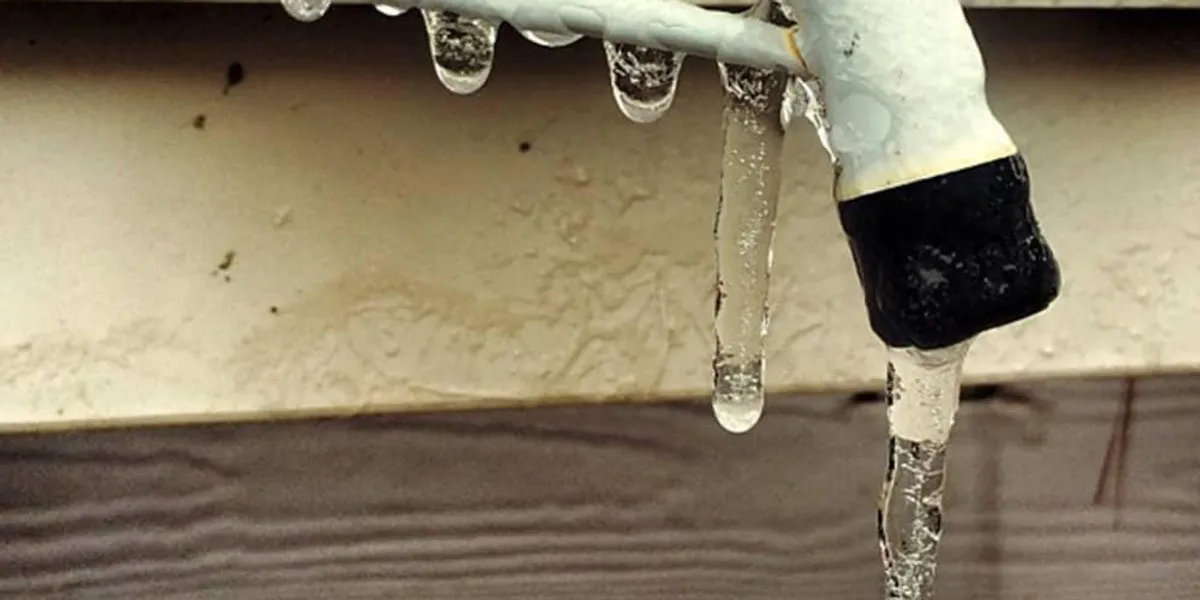Tips to Defend Pipes from Cold Weather: Specialist Tips
Tips to Defend Pipes from Cold Weather: Specialist Tips
Blog Article
This article listed below in relation to Prevent Frozen Pipes is without a doubt intriguing. Try it and make your own personal assumptions.

Winter can wreak havoc on your plumbing, particularly by freezing pipelines. Right here's how to prevent it from taking place and what to do if it does.
Introduction
As temperatures decrease, the risk of icy pipelines increases, possibly leading to expensive repair work and water damages. Understanding exactly how to stop icy pipes is important for house owners in chilly climates.
Comprehending Frozen Pipes
What causes pipes to freeze?
Pipelines ice up when subjected to temperatures below 32 ° F (0 ° C) for extended periods. As water inside the pipelines freezes, it increases, taxing the pipe wall surfaces and potentially triggering them to break.
Dangers and damages
Frozen pipes can result in water system disturbances, residential or commercial property damage, and costly repair services. Ruptured pipes can flood homes and trigger substantial structural damage.
Indications of Frozen Water Lines
Determining icy pipes early can stop them from breaking.
How to determine icy pipes
Seek decreased water circulation from taps, unusual smells or sounds from pipelines, and noticeable frost on subjected pipelines.
Avoidance Tips
Shielding prone pipes
Wrap pipelines in insulation sleeves or use warm tape to shield them from freezing temperatures. Concentrate on pipelines in unheated or exterior locations of the home.
Home heating methods
Maintain interior rooms adequately heated up, particularly locations with plumbing. Open up closet doors to enable cozy air to circulate around pipelines under sinks.
Shielding Exterior Pipes
Garden hose pipes and outdoor faucets
Separate and drain yard tubes before winter months. Install frost-proof faucets or cover exterior faucets with protected caps.
What to Do If Your Pipes Freeze
Immediate actions to take
If you suspect frozen pipes, keep taps open up to eliminate stress as the ice melts. Utilize a hairdryer or towels taken in hot water to thaw pipelines slowly.
Long-Term Solutions
Structural adjustments
Consider rerouting pipelines away from exterior walls or unheated locations. Include added insulation to attics, basements, and crawl spaces.
Updating insulation
Buy top notch insulation for pipes, attics, and walls. Proper insulation assists keep regular temperature levels and decreases the threat of frozen pipes.
Conclusion
Preventing frozen pipelines needs positive steps and quick feedbacks. By recognizing the causes, indications, and safety nets, property owners can shield their pipes throughout winter.
6 Proven Ways to Prevent Frozen Pipes and Protect Your Home
Disconnect and Drain Garden Hoses
Before winter arrives, start by disconnecting your garden hoses and draining any remaining water. Close the shut-off valves that supply outdoor hose bibs and leave the outdoor faucet open to allow any residual water to drain. For extra protection, consider using faucet covers throughout the colder months. It’s also important to drain water from any sprinkler supply lines following the manufacturer’s directions.
Insulate Exposed Pipes
Insulating your pipes is an effective way to prevent freezing. Pipe insulation is readily available at home improvement stores and is relatively inexpensive. Pay close attention to pipes in unheated areas such as the attic, basement, crawl spaces, or garage. Apply foam insulation generously to create a buffer against the cold. You can also wrap your pipes in heat tape or thermostat-controlled heat cables for added warmth.
Seal Air Leaks
Inspect your home for any cracks or openings that could let in cold air. Seal any holes around the piping in interior or exterior walls, as well as the sill plates where your home rests on its foundation. Additionally, make sure to keep your garage door closed unless you’re entering or exiting. Leaving it open creates a significant air leak that can lead to frozen pipes.
Allow Warm Air Circulation
During cold snaps, it’s essential to allow warm air to circulate evenly throughout your home. Leave interior doors ajar to promote better airflow. Open kitchen and bathroom cabinets to help distribute heat consistently around the rooms. If you have small children or pets, be sure to remove any household chemicals or potentially harmful cleaners from open cabinets for safety.
Let Faucets Drip
A small trickle of water can make a big difference in preventing ice formation inside your pipes. When temperatures drop significantly, start a drip of water from all faucets served by exposed pipes. This continuous flow helps prevent the water from freezing. Additionally, running a few faucets slightly can relieve pressure inside the pipes, reducing the chances of a rupture if the water inside does freeze.
https://choateshvac.com/6-proven-ways-to-prevent-frozen-pipes-and-protect-your-home/

I'm just very occupied with How To Avoid Freezing Pipes and I am hoping you enjoyed the entire blog posting. Appreciated our blog? Please share it. Let somebody else find it. I recognize the value of reading our article about Preventing and dealing with frozen pipes.
Schedule Your Job Now Report this page